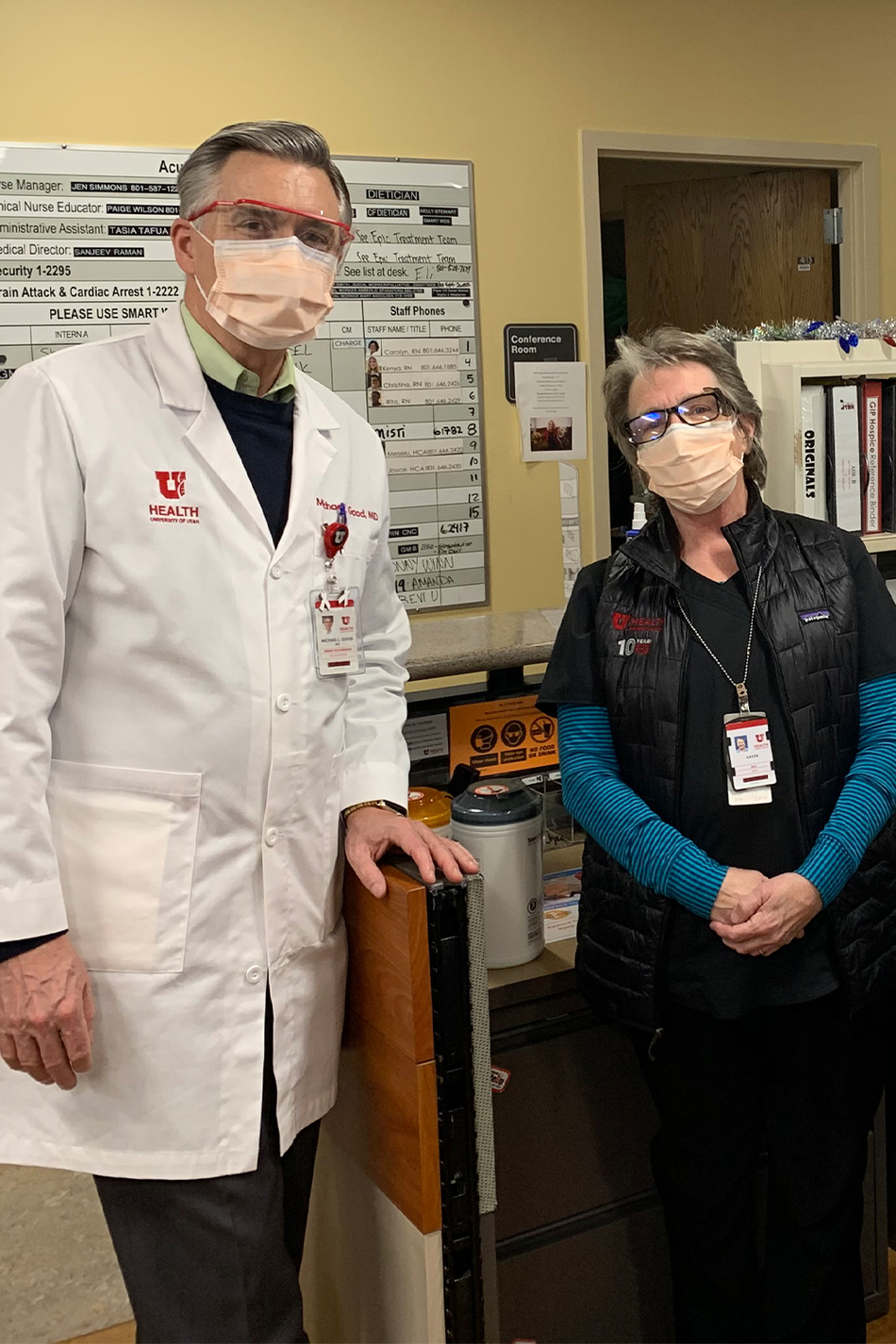
Episode Transcript
Interviewer: We're talking with Dr. Michael Good, who is the CEO of University of Utah Health. And here at thescoperadio.com, we got word that Dr. Michael Good was spotted in the hospital, so we wanted to find out what was going on. Now, I don't know but is it common for a CEO to be in the hospital late at night rounding?
Dr. Good: I don't know what other hospital and health system CEOs do. I hope they do that. Taking care of patients is both a real privilege and also a great responsibility. And we have great people here at University of Utah Health, and it was really a pleasure to get to meet and chat with many of them last evening.
Interviewer: Well, tell me more about why you were there, what you saw, and what happened.
Dr. Good: Last evening, I spent over three hours with our mobile nursing supervisor walking the hospital, checking in with our charge nurses, and just seeing the hospital at work in the evening hours. The daytime shift gets a lot of attention and focus. A lot of things happen in the hospital during the day that's really important. But I can tell you at 10:00 p.m. last night, there was really impressive health care happening, and that's where I wanted to spend my time last evening.
It was just really impressive to see our people at work. Many of the patients' care was following routine protocols, but I also saw our people really called into action. There was an infectious disease exposure, and Jared, the nursing supervisor that's one of his responsibilities is to see if the patient will consent for a blood specimen so we can help sort out the health of our healthcare provider. We had a patient sign out against medical advice last night. And health care is intense and it's challenging, and there's a lot of emotional discharge, if you will, from our patients. And particularly our nurses are on the frontline of that.
We had a behavioral emergency, where the team also included security and really having to help a patient understand what is acceptable behavior in our hospital and what's not.
And then really where I was most proud, pretty late into the evening, we have a rapid response team. It's where a patient on the medical ward, where their vital signs, their heart rate, their blood pressure, their oxygen saturation, their breathing rate crosses certain thresholds and the team rallies. It really was a multidisciplinary team that came together, physicians, both general and specialty physicians. There were nurses, both the nurse that was taking care of the patient, but as things became urgent, the charge nurse came in and also participated. As things became more urgent, the nurses that are part of our rapid response team came. An EKG technician came and performed that. As blood cultures and other laboratories tests were needed a member of our phlebotomy team came. And it was really like a great orchestra.
It's really hard to describe the sophistication, the teamwork, and the level of care that quite honestly you'll observe every night happening over and over again here at University of Utah Hospital.
Interviewer: Were there any takeaways from last night that is going to change anything that you do?
Dr. Good: You spend an evening in the hospital, and I was supercharged. It makes me want to come to work in the morning and work even more so to make sure our staff and our faculty have the tools, have the resources, have the things they need to do to excel in their work. I couldn't help but notice last night, as we moved through the hospital, how many of our team members were wearing their top 10 for 10 Patagonia vests. Last year for the 10th year in the row, University of Utah Hospital was recognized by Vizient, a national organization, as being in the top 10 for inpatient quality of care and being in the top 5 for ambulatory quality of care. And, of course, those Patagonia vests are now a year old.
And while a year ago, we were 10 for 10, one of the things that got lost, if you will, in the fog of the coronavirus pandemic was that this year University of Utah Health was number 1 in the country for inpatient care 11 for 11. So there was a lot of pride of ownership. One way that people display that is with they're proud to wear the vest, if you will.
It was just re-energizing to see great care being delivered late at night when there's not a lot of attention or not a lot of spotlight, but really special people taking great pride in their work and knowing that they made a difference in the life of their patient last night.
Interviewer: You had an opportunity to interact with some of the great providers and people that make all this possible, but you also, were not able to interact with everybody. So I'd like to give you an opportunity as we wrap this up to deliver a message to everyone, all the great individuals working at U of U Health. What would you say?
Dr. Good: I want to say thank you to each member of the University of Utah Health team. What you do is so impressive, so meaningful, so impactful, so often life-changing and life-altering for our patients. I couldn't be prouder of you. I couldn't be prouder to be a part of this team. And I am very optimistic about what you will do in the year ahead.